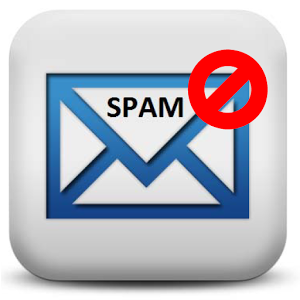Sunday
Mar272011
How to tell if you have a virus.
 Sunday, March 27, 2011 at 4:36PM
Sunday, March 27, 2011 at 4:36PM The simple fact is most computer problems are not caused by a virus. Most computer problems are software problems with Mirosoft Wndows. Usually it's something acting hinky (not a technical term) in windows itself. It might be a software conflict such as a program you installed causing the computer to crash or run slow or a driver. A "driver" is a program that tells windows how to use something in you computer such as a printer or camera. All it takes is a poorly writing driver or program to cause your computer to do any number of weird things.
How do I know if it's really a virus?
Actually, today its pretty easy to tell. The most common type of virus is a "fake alert" virus. This is a program that pops up on your computer usually telling you your computer is infected with a virus. Sounds strange right? A virus telling you you have a virus. It then give you the option to remove the virus, but when you click yes to do this, it tells you you need to purchase the full version. You can then make the very bad mistake of clicking to purchase and entering your credit card number and personal information as many people do. What usually happens next is even more interesting...nothing. They don't remove anything as this program IS the virus. But they do have your credit card information any may or may not charge some crazy fee to it, but they can also sell your credit card information online or use it for other purchases. They pray on your fear making your believe the program is legit by making it look similar to a real antivirus program. Almost every virus we see today displays this type of behavior as a program that pops up on your screen, warns you of problems that don't really exist and usually won't let you continue using the computer until you click on them. The worse part is the instant your infected with one of these viruses, it can immediately be stealing any personal information on your computer such as files, credit card information and passsords to websites in the background.
What you need to do is know what Antivirus software you really do have. Some of the popular ones are Microsoft Security Essentails, Nortons, McAfee, AVG and there are others. Knowing what you have will allow you to know if whats on your screen is the real thing or not.
How did you get this virus?
In the random probability method, the attacker sends out millions of emails a day in hopes to hit the right person at the right time. Let's say your company orders from Staples regularly. You might receive and email that looks like a real staples email that says "Your order has been shipped. Click here to view your order." and if you didn't just order something you might think "what order, I didn't order anything today" and then you do the worst thing...you click the link...and your infected. Or this time of year you might get an email that appears to be from the IRS at www.irs.gov saying that this year there is a new 1040ez form. If you file a 1040ez form on your taxs you might click the adobe PDF file attachment to print it. Well that file is infected and depending on your version of the adobe PDF reader on your computer you will get the virus.
The simple rule is NEVER click on a link or attachment in an email that your not expecting. You may get something from your brother to "Check out this funny video" but I don't recommend ever clicking on them. If you want to check if there was really an order shipped from staples, open your browser and type in www.staples.com then log in and check it, don't click the link. If you want to know if there is a new 1040ez form go to www.irs.gov. If you are worried about your eBay password. Go to www.eBay.com, login and change your password. The only time it's safe to click a link is if you requested it. If you went to www.ebay.com and clicked on "Retrieve Lost Password" then you got an email to change your password a minute later, you know it's legit since you requested it.
What should I do if I get a virus?
Unfortunately there is little most users can do on their own. First is turn off the computer and don't use it until it's been serviced. If it's off, the bad guys can't be stealing information. Next, seek a professional. Half the time the virus can be removed, sort of. The other half, it can't and the computer must be reformatted. Almost always your data can still be retrieved first. The reason I say it can sort of be removed is unfortuntly the rule is that once your infected, even if its removed and everything appears fine, there is not way to know with 100% certainty the computer is clean. There is always the change something was missed. Reformatting is the only sure way to know your computer is completely clean.
So if you wish to avoid credit card theft, someone accessing your bank account, accessing your personal website accounts, and hundreds of dollars in computer repair costs...don't click on links in emails or open unknown attachments. With just that simple rule you are protected as much as is possible these days.
Something you would like us to explain or write about? Send us your ideas at blogideas@ineedbob.com





Reader Comments